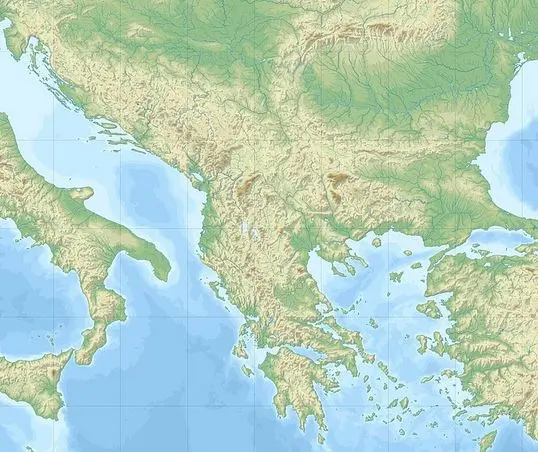Ambracia, an ancient city-state located in the western part of Greece, played a significant role in the region’s history. Known for its strategic position and rich cultural heritage, Ambracia is a key subject for understanding ancient Greek politics, warfare, and urban development. This article explores the historical and geographical significance of Ambracia, its role in Greek history, and its lasting impact.
1. Historical Overview of Ambracia
A. Location and Geography:
- Location: Ambracia was situated in the region of Epirus, near the Ambracian Gulf (modern-day Gulf of Arta). Its location provided strategic advantages, making it an important city-state in ancient Greece.
- Geographical Features: The city was positioned on a hilly terrain, which offered natural fortifications and control over the surrounding areas.
B. Founding and Early History:
- Foundation: Ambracia was founded in the 7th century BCE. It emerged as a significant urban center due to its advantageous location and fertile land.
- Early Development: The city quickly grew in importance, establishing itself as a key player in regional politics and trade.
2. Political and Military Significance
A. Role in Greek Politics:
- Alliance with Rome: During the Roman conquest of Greece, Ambracia allied with Rome. The city’s strategic location made it a valuable asset in the Roman expansion into Greece.
- Autonomy and Governance: Ambracia maintained a degree of autonomy within the Roman Empire, allowing it to preserve aspects of its local governance and culture.
B. Military History:
- Defensive Fortifications: The city was known for its strong defensive walls and fortifications, which played a crucial role in protecting it from various invasions and conflicts.
- Role in Conflicts: Ambracia was involved in several significant conflicts, including those against neighboring city-states and the Roman Empire. Its strategic location made it a focal point in military campaigns.

3. Cultural and Economic Aspects
A. Cultural Heritage:
- Architectural Achievements: Ambracia was renowned for its architectural and urban planning innovations. The city featured impressive public buildings, including temples, theaters, and marketplaces.
- Cultural Influence: The city contributed to the cultural and intellectual life of ancient Greece, hosting various scholars, artists, and philosophers.
B. Economic Importance:
- Trade and Commerce: Ambracia’s location near the Gulf of Ambracia facilitated trade and commerce. The city became a significant economic hub, engaging in trade with other Greek city-states and regions.
- Agriculture: The fertile land around Ambracia supported agricultural activities, contributing to the city’s economic prosperity.
4. Archaeological Discoveries and Legacy
A. Archaeological Significance:
- Excavations: Archaeological excavations in the region have uncovered significant artifacts and structures from ancient Ambracia. These discoveries provide valuable insights into the city’s history and daily life.
- Preserved Remains: The remains of the city’s defensive walls, public buildings, and residential areas offer a glimpse into the urban layout and architectural style of ancient Ambracia.
B. Historical Legacy:
- Impact on Greek History: Ambracia’s role in ancient Greek history is highlighted by its strategic importance and contributions to regional politics and culture. The city’s legacy is reflected in its influence on subsequent historical developments.
- Cultural Remembrance: The historical and archaeological findings continue to be studied and preserved, ensuring that Ambracia’s contributions to ancient Greek civilization are remembered and appreciated.
5. Modern Relevance and Tourism
A. Educational Value:
- Study of Ancient Greece: Ambracia’s history and archaeological findings are valuable for understanding ancient Greek civilization, offering insights into urban development, military strategy, and cultural practices.
- Academic Research: The city’s historical significance is a subject of ongoing academic research, contributing to the broader understanding of ancient Greek history.
B. Tourism and Preservation:
- Tourist Attractions: The archaeological sites and historical landmarks of Ambracia attract visitors interested in ancient Greek history. Guided tours and educational programs highlight the city’s historical and cultural significance.
- Preservation Efforts: Efforts are ongoing to preserve and protect the archaeological remains of Ambracia, ensuring that future generations can continue to explore and learn about this important historical site.
Ambracia, with its strategic location, rich cultural heritage, and historical significance, remains a key subject in the study of ancient Greece. Its contributions to regional politics, military strategy, and economic development reflect the city’s importance in ancient Greek civilization. Through ongoing archaeological research and preservation efforts, the legacy of Ambracia continues to be celebrated and studied, offering valuable insights into the history and culture of the ancient world.




